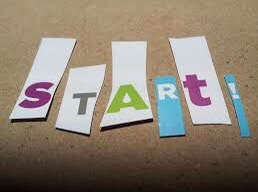I have a few questions for you…
How is your cholesterol? Your blood pressure? Your breathing? What about your ability to move without breaking into a sweat? Do you find you have no time to workout or prepare healthy meals? How much time do you spend going to the doctor? And how much money is spent on medicines that treat symptoms of disease?
My friends, today IS “some” day. The day you decide to commit to a fit lifestyle. Just do it. For yourself, your family, your children, your community. Because if you live a life with too little sleep combined with continual over-indulgences, ill health WILL creep into your body. There is simply no way to sugar coat the cost of not committing to making small healthy lifestyle changes.

Often we create our own self sabotage by setting unrealistic goals. However, you don’t need to run marathons. I’m a big fan of “every little bit counts” and the “10 minute difference”. Small steps in a healthy direction, made consistently over time, WILL make a huge difference in your health. These 31 steps (from Bulletproof) are an EXCELLENT place to start. Set small, simple goals and BE KIND to yourself along the way.
And please, go moderately. Walking is a great way to start. Find an activity you enjoy so you are likely to continue doing it. (That is one of my most often asked questions, “Which type of exercise is best?” My reply is, “Whatever workout you are most likely to stick to!”) And if you hate lettuce, don’t eat it! But don’t set a “10 pound weight loss in two weeks” goal. Healthy living is a journey that’s about doing your best—and forgetting the rest, one step and one day at a time.
Here are some things I’ve learned..
Bodyweight involves more than willpower and biology plays a big role. And, when it comes to willpower, environment matters! (I cannot stress that enough.) Low fat diets blame people when they don’t lose weight—but “fat-free” is not the way to go; it’s damaging and the very nature of that path contributes to failure! Society treats people with a weight problem with more stigma than anything else, sadly. In a nutshell, a healthy “diet” is one that has REAL food, limits processed foods, and limits sugars.
When it comes to fat, we NEED fat in our diets! When we leave it out, our bodies goes into starvation mode. Yes, we can lose weight.. but the body fights back, hunger goes up, metabolism goes down, and the stress hormones secreted erode lean tissue. The best way is to reverse this recipe for failure is to focus on eliminating processed carbs (which raise insulin and drive fat cells into a feeding frenzy- ugh). Once fat cells calm down, the calories you eat stay in the blood stream longer, so they are able to nourish your brain, muscles and organs. What happens then? “Health” happens, that’s what. Hunger decreases, metabolism increases, and…we lose weight. I wish I could shout this from mountain tops and get the message out—there are so many misconceptions around fat and carbs!
The government quietly lifted the dietary limitations on fats in 2015, but who heard? That’s because their prior recommendations for “low fat” were erroneous and directed us to look at fat vs sugar. Quite frankly, this direction contributed to the obesity epidemic… along with processed food product quality and convenience–but that’s a blog for another day! Regardless, those earlier low fat “recommendations” were wrong.
Note: In all fairness, Trans fats (partially hydrogenated soybean oil, for example) are AWFUL & should be avoided at all costs, but fat in general is needed and necessary. Let’s help get the word out that the low fat message was wrong.
Now back to our healthy living journey! Starting a new year is a great time to develop a plan, but honestly, I find short term goals work best. I create new lists, look over old lists regularly, and adjust them continually to suit life’s desires.
Here are a couple of ideas for you– but you can create your own “Get Healthy in 2017” list:
- Pay attention to your sleep and create better bedtime habits
- Drink less soda, drink more water
- Learn something new
- Identify a couple accountability partners (the closer in proximity, the better, but virtual works too)
- Consider incorporating coconut oil into your diet (and research why it’s a good idea)
- Find a good healthy living/eating/exercise site/book and READ it regularly
- Eat dark chocolate
- Find your inner child
- Learn how intermittent fasting may benefit you
- Get/play outside
- De-clutter your life
So make your list, check it regularly, share it with those around you—and make a point to surround yourself with a good supportive network. #EnvironmentMatters
In the end, we have ONE body. Take care of it so you can live your life more fully.
Until next time, I wish you the best of HEALTH, happiness & dreams fulfilled.
~Lisa
CNN’s 2016 Article
http://www.cnn.com/2016/06/06/health/fat-is-back-eat-like-a-mediterranean/index.html
NY Times 2014 Article

